Rosh Hashanah, Yom Kippur and Sukkot of the High Holidays all come in quick succession in the September-October period of the fall season. They maintain their precise schedule of intervening days between them because their timing was instituted through Moses in the Torah. The preciseness sheds light on a debate going back to the Talmud about whether to expect more than one Messiah. We explore this herein, looking at the intriguing prophecy put forth in Zechariah 12.
Here is how the Torah lays out the schedule of these three festivals in the book of Leviticus:
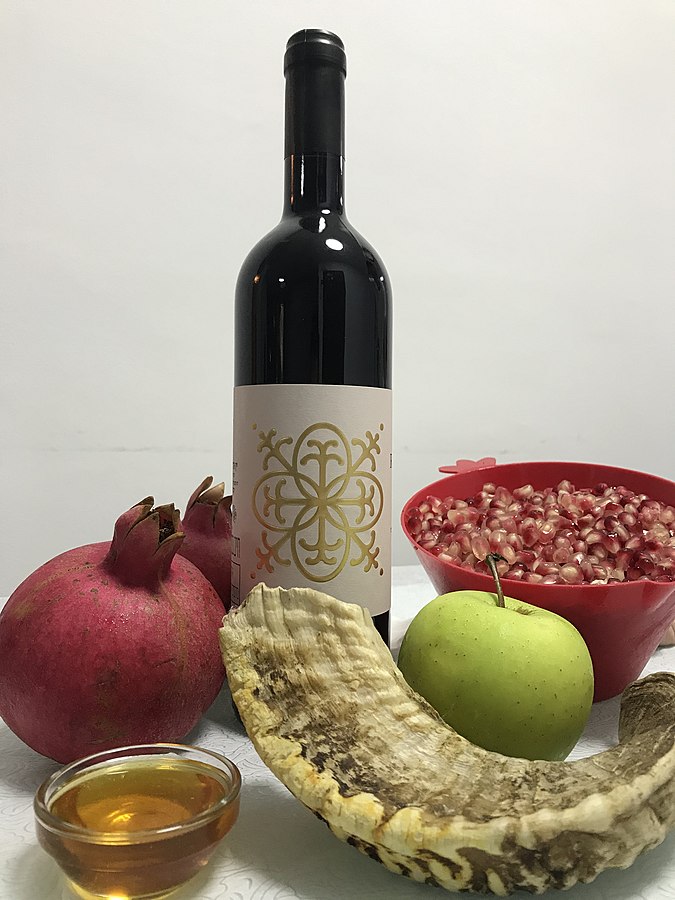
Rosh Hashanah
23 The Lord said to Moses, 24 “Say to the Israelites: ‘On the first day of the seventh month you are to have a day of sabbath rest, a sacred assembly commemorated with trumpet blasts. 25 Do no regular work, but present a food offering to the Lord.’”
Leviticus 23: 23-25
Yom Kippur
26 The Lord said to Moses, 27 “The tenth day of this seventh month is the Day of Atonement. Hold a sacred assembly and deny yourselves, and present a food offering to the Lord. 28 Do not do any work on that day, because it is the Day of Atonement, when atonement is made for you before the Lord your God. 29 Those who do not deny themselves on that day must be cut off from their people. 30 I will destroy from among their people anyone who does any work on that day. 31 You shall do no work at all. This is to be a lasting ordinance for the generations to come, wherever you live. 32 It is a day of sabbath rest for you, and you must deny yourselves. From the evening of the ninth day of the month until the following evening you are to observe your sabbath.”
Leviticus 23: 26-32
Sukkot
33 The Lord said to Moses, 34 “Say to the Israelites: ‘On the fifteenth day of the seventh month the Lord’s Festival of Tabernacles begins, and it lasts for seven days.
Leviticus 23:33-34
The Torah gives no reason why Rosh Hashanah is to be on the first day of the seventh month. Why not on the tenth month? Likewise, why does Yom Kippur follow exactly 10 days after Rosh Hashanah and then Sukkot five days later? Nowhere does the Tanakh give a reason for this precise, but seemingly causeless, schedule for Rosh Hashanah, Yom Kippur and Sukkot. The seventh month in question is the seventh lunar month in the Hebrew lunisolar year – Tishrei (or Tishri).
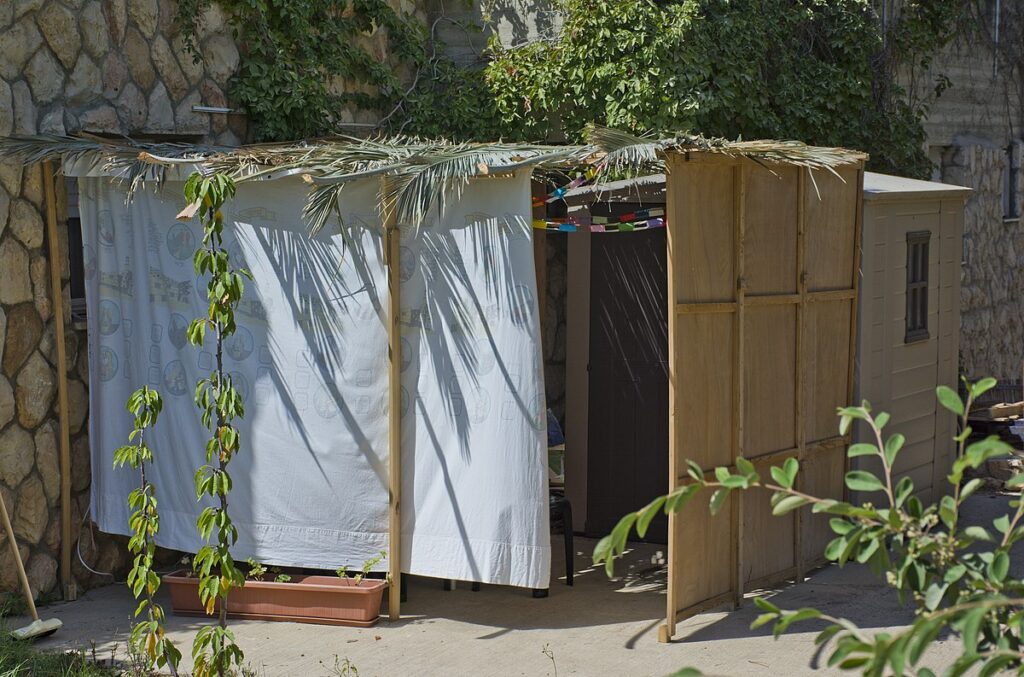
Clue from the Spring Festivals
These three Fall Festivals (also known as Feast of Trumpets, Day of Atonement, and Feast of Tabernacles or Booths) form part of the annual rhythm of sacred festivals laid out in Leviticus 23. The other festivals cluster in the spring: Passover and Unleavened Bread, First Fruits, and Shavuot. (The weekly sabbath leads off the the Spring festival regulations and schedule in Leviticus 23). They also have a precise but seemingly random schedule. First Fruits comes on ‘the day after Sabbath’ after Passover, and Shavuot coming precisely 50 days after that.
The Torah or Tanakh never explain why this precise schedule of feasts is laid out after Passover. But subsequent events of history reveal a reason. We can use this pattern to extrapolate reasons for the timing of the festivals of the High Holidays or Days of Awe. The Jewish tradition of Ten Days of Repentance between Rosh Hashanah and Yom Kippur is consistent with this extrapolated reason.
Yeshua and the Spring Festivals
Notice the perfect synchronizing of all Spring festivals and Sabbath laid out in Leviticus 23 juxtaposed with Yeshua’s climax events.
| Torah Festival | Schedule | Event or Celebration Focus | Yeshua Event |
| Passover | Nisan 14 | Passover lamb sacrificed | Yeshua (designated Lamb of God) crucified. |
| Sabbath | Weekly | Rest from work | Yeshua rests in death |
| First Fruits | day after Sabbath after Passover | Springtime new life sprouting | Yeshua raised from death into new life |
| Shavuot | 50 days after First Fruits | Grain offering/Ten Commandments | Spirit of G-d indwells Yeshua followers granting inner power to follow G-d’s commands |
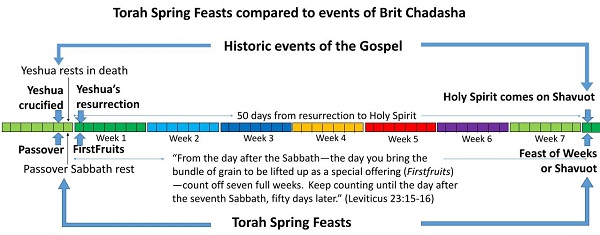
Two Messiahs?
The Talmud contains Jewish thought that postulates at least two Messiahs. The more well-known Messiah is Messiah ben David while the other is Messiah ben Joseph. The reason for more than one Messiah is that the Messianic prophecies in the Tanakh set forth very different themes. The one theme (represented by Messiah ben David) encapsulates the kingly prophecies of rule, peace and power. Examples of this type of Messiah in the Tanakh include:
- Psalm 2 depicting his rule with power over the nations from Jerusalem, and Genesis 49.
- Daniel’s ‘Son of Man’ prophecy where the Messiah comes on the clouds of heaven before all peoples.
- ‘The Branch’ of Isaiah, Jeremiah and Zechariah.
An example of the suffering Messiah, which then some attribute to the other Messiah – Ben Joseph, is the Suffering Servant of Isaiah 53. The Servant goes through such dramatically different experiences in Isaiah 53 from those above. So some rabbis postulated that perhaps the Tanakh foresaw more than one Messiah.
Or One Messiah in Two Comings?
We see in the annual distribution of the Festivals prescribed by Hashem through Moses in the Torah that they form two distinct sets. The first set clusters together in the springtime while the second set clusters together in the fall. Yeshua precisely coordinated with all the spring festivals as shown in the table above. But he did not do so for any of the fall festivals. (Though the Gospel of John records him celebrating Sukkot). This raises another explanation for the divergent Messiah themes: that the same Messiah would come two different times, each time taking up a different role. Just as the Spring festivals uncannily predicted the climax moments in his First Coming, so therefore also the Fall festivals predict the climax moments of his Second Coming. Yeshua did claim that he would return and in dramatic fashion.
Zechariah’s Prophecy – Messiah ben Ephraim or Yeshua come again?
Rabbis advancing the idea of multiple Messiahs often cite Zechariah’s unusual prophecy as a ‘Messiah ben Joseph’ proof-text. Here is the prophecy, given about 500 BCE
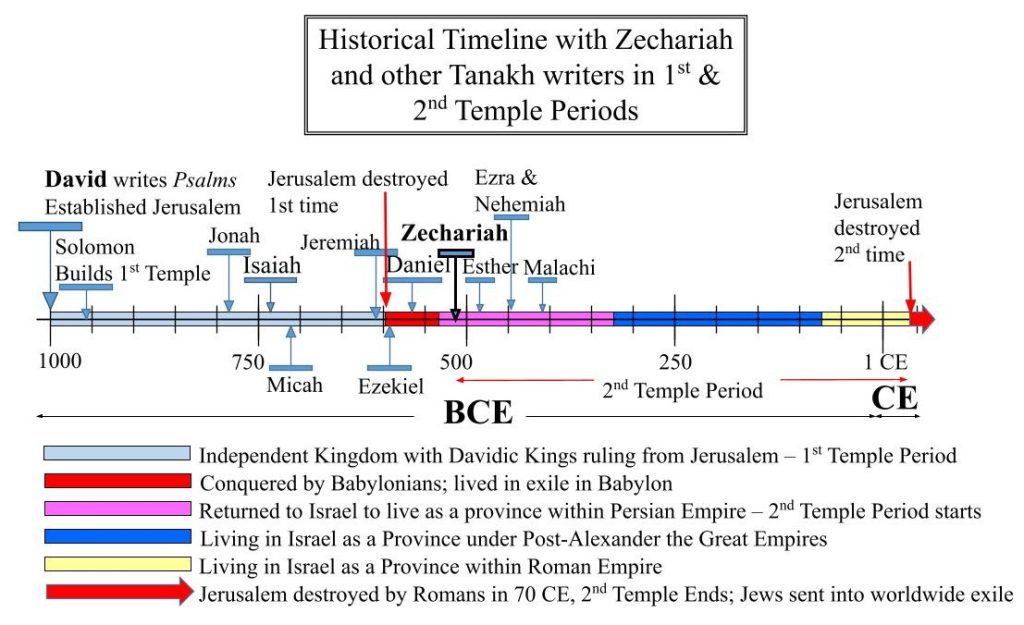
A prophecy: The word of the Lord concerning Israel.
The Lord, who stretches out the heavens, who lays the foundation of the earth, and who forms the human spirit within a person, declares: 2 “I am going to make Jerusalem a cup that sends all the surrounding peoples reeling. Judah will be besieged as well as Jerusalem. 3 On that day, when all the nations of the earth are gathered against her, I will make Jerusalem an immovable rock for all the nations. All who try to move it will injure themselves. 4 On that day I will strike every horse with panic and its rider with madness,” declares the Lord. “I will keep a watchful eye over Judah, but I will blind all the horses of the nations. 5 Then the clans of Judah will say in their hearts, ‘The people of Jerusalem are strong, because the Lord Almighty is their God.’
6 “On that day I will make the clans of Judah like a firepot in a woodpile, like a flaming torch among sheaves. They will consume all the surrounding peoples right and left, but Jerusalem will remain intact in her place.
7 “The Lord will save the dwellings of Judah first, so that the honor of the house of David and of Jerusalem’s inhabitants may not be greater than that of Judah. 8 On that day the Lord will shield those who live in Jerusalem, so that the feeblest among them will be like David, and the house of David will be like God, like the angel of the Lord going before them. 9 On that day I will set out to destroy all the nations that attack Jerusalem.
Mourning for the One They Pierced
10 “And I will pour out on the house of David and the inhabitants of Jerusalem a spirit of grace and supplication. They will look on me, the one they have pierced, and they will mourn for him as one mourns for an only child, and grieve bitterly for him as one grieves for a firstborn son.
Zechariah 12:1-10
There are several startling observations to make of this prophecy. Here are some:
The Pierced One can only be…
Verse 10 references ‘the one they have pierced’. In other words, this person is not being pierced when the events of this prophecy happen. Rather, he had been pierced at some point previously. They have already pierced him. This in principle requires two distinct times: the time being pierced and the later time when they ‘look on’ him. Yeshua in two distinct Comings fits this perfectly. He came once already and was ‘pierced’ on the cross (which all agree happened to him). He will come again as he himself said, as verse 10 demands, and as the tight schedule of the Fall Festivals implies.
Not only does Yeshua fit verse 10, but he is the only one in all history that can conceivably do so. An awaited Messiah coming for the first time sometime in the future cannot fulfill verse 10 which demands a previous coming. There are two other distinct references to being ‘pierced’ in the Tankah: Psalm 22 and Isaiah 53. These both look forward in time and prophesy the piercing. But Zechariah looks past that event to a further future when Jerusalemites see the one who was already pierced.
…Coming to rescue Jerusalem
This ‘Pierced One’ comes to Jerusalem! He does so to defeat foreign armies surrounding Jerusalem intent on destroying her and massacring all the Jews living there. The Hamas massacre of October 7, 2023 revealed that such hatred exists. From Zechariah’s description it seems like this will happen again at an even larger scale. It will occur in Jerusalem, not the Gaza border. That tight sequence of Fall festivals in Tishrei implies a tight sequence of events in the rescue of Jerusalem and Jerusalem’s mourning for him.
…and is the Lord
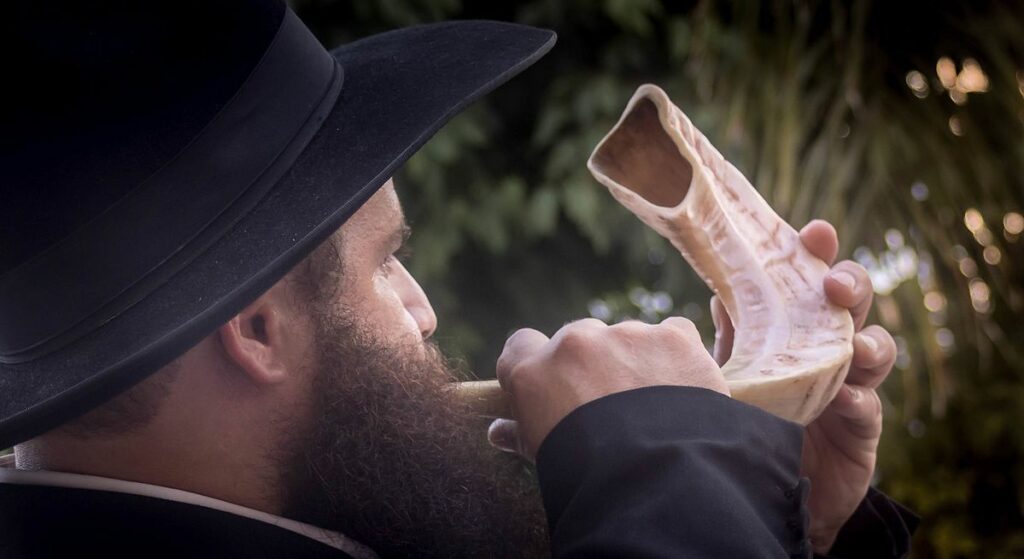
Notice who utters this prophecy in verse 1. It is the ‘Lord’ (Adonai). To make sure there is no misunderstanding He qualifies it further with ‘who stretches out the heavens’ and ‘forms the human spirit within a person’. This is the Creator G-d of Genesis 1 and 2. Following the prophecy, note therefore that every ‘I’ in this prophecy is this same G-d. It never switches to Zechariah or anyone else. Therefore, since the speaker never changes the ‘me’ in verse 10 must be this same Creator. But we also noted already that this ‘me’ is also the ‘pierced one’ who can only conceivably be Yeshua.
Trumpets inaugurate Rosh Hashanah and trigger the High Holiday sequence. In the book of Revelation of the Brit Chadasha, trumpet blasts signal the Judgment of G-d. With the seventh and final Trumpet…
The seventh angel sounded his trumpet, and there were loud voices in heaven, which said:
“The kingdom of the world has become
Revelation 11:15
the kingdom of our Lord and of his Messiah,
and he will reign for ever and ever.”
We see now the meteoric rise in global anti-semitism and have witnessed the massacres of October 7. So it does not seem too far-fetched to see Jerusalem surrounded by enemy armies in the not-too-distant future. Perhaps meditating on Zechariah would be in order at the next Ten Days of Repentance. Our generation might be the one that witnesses its fulfillment.